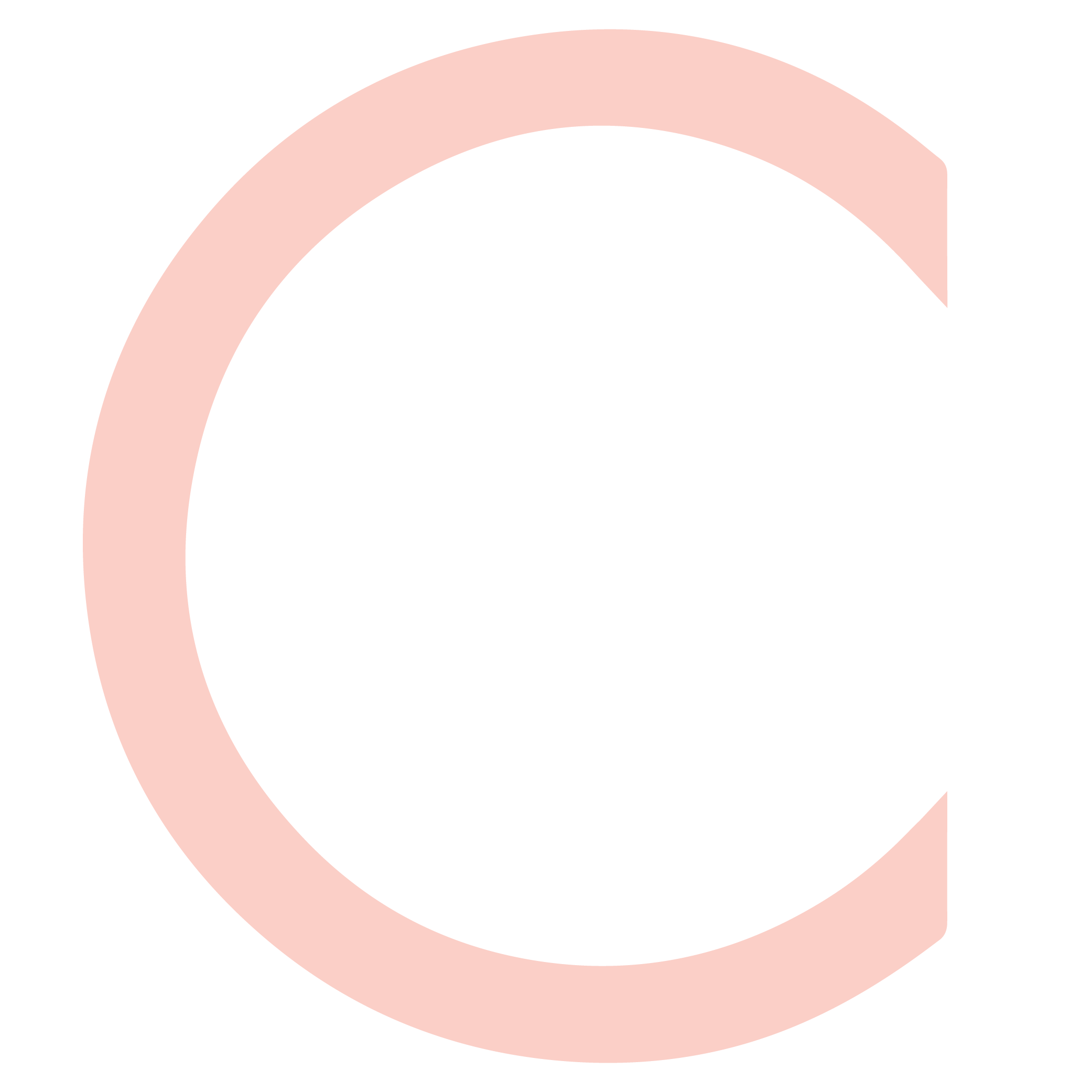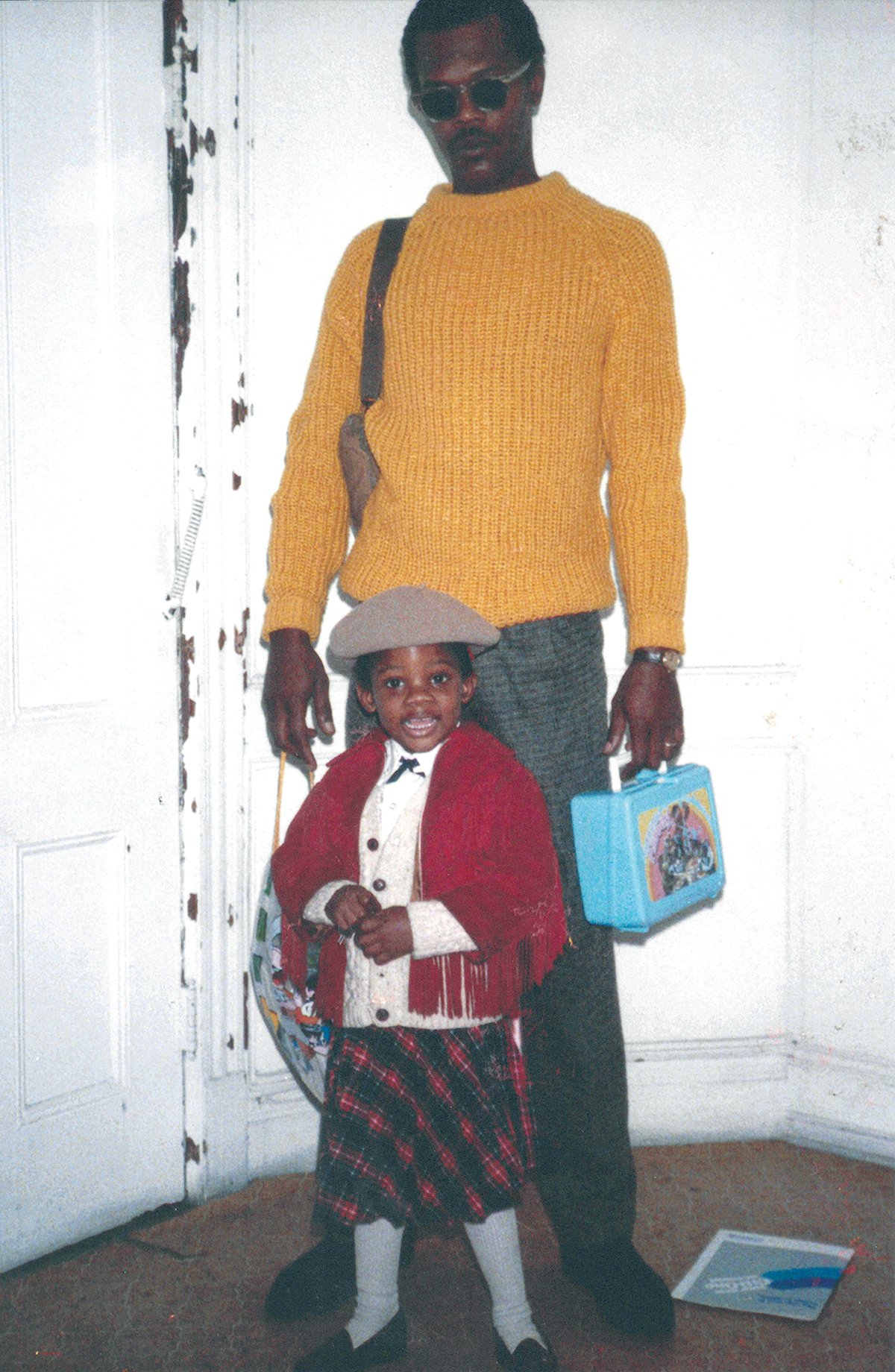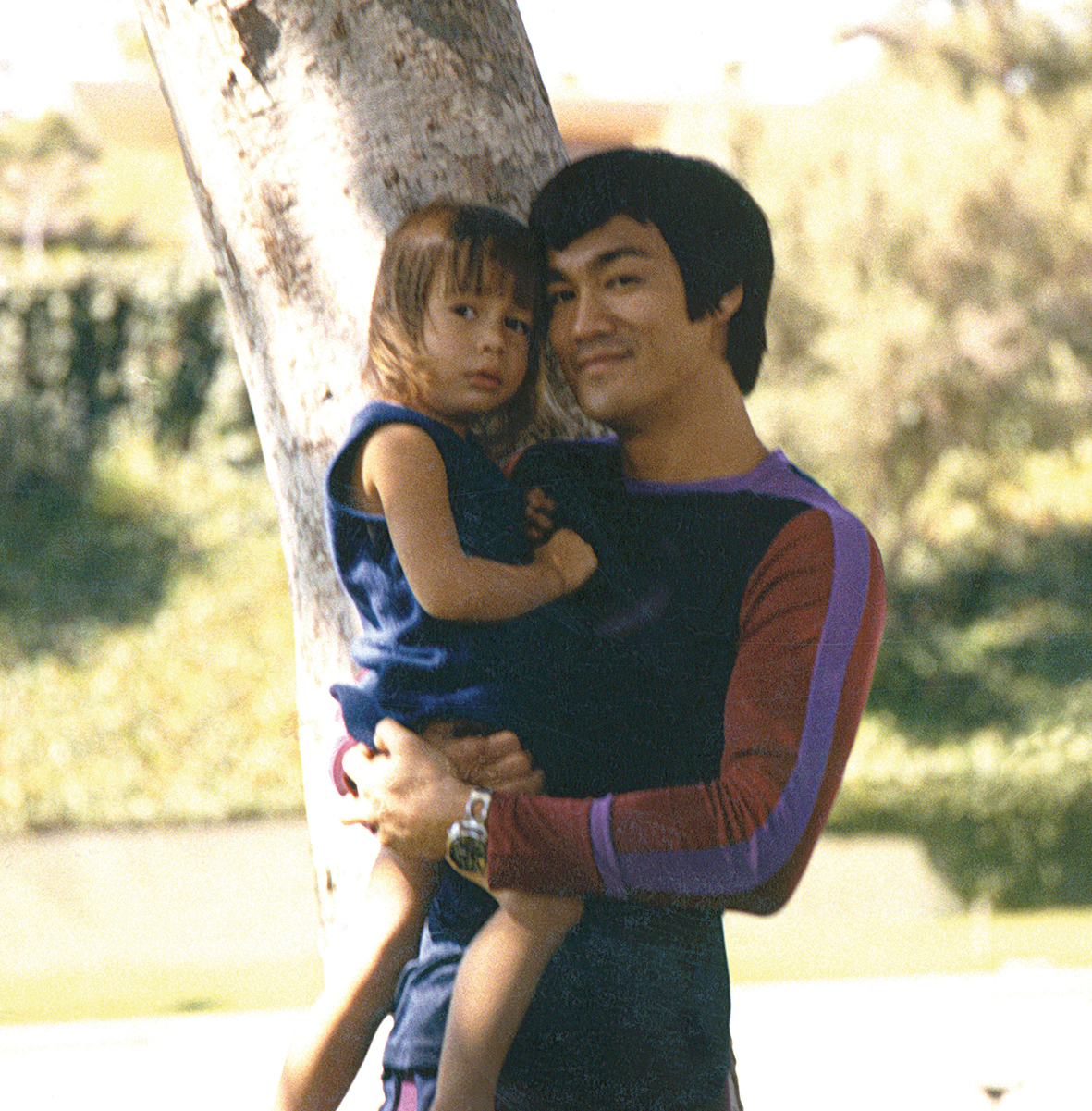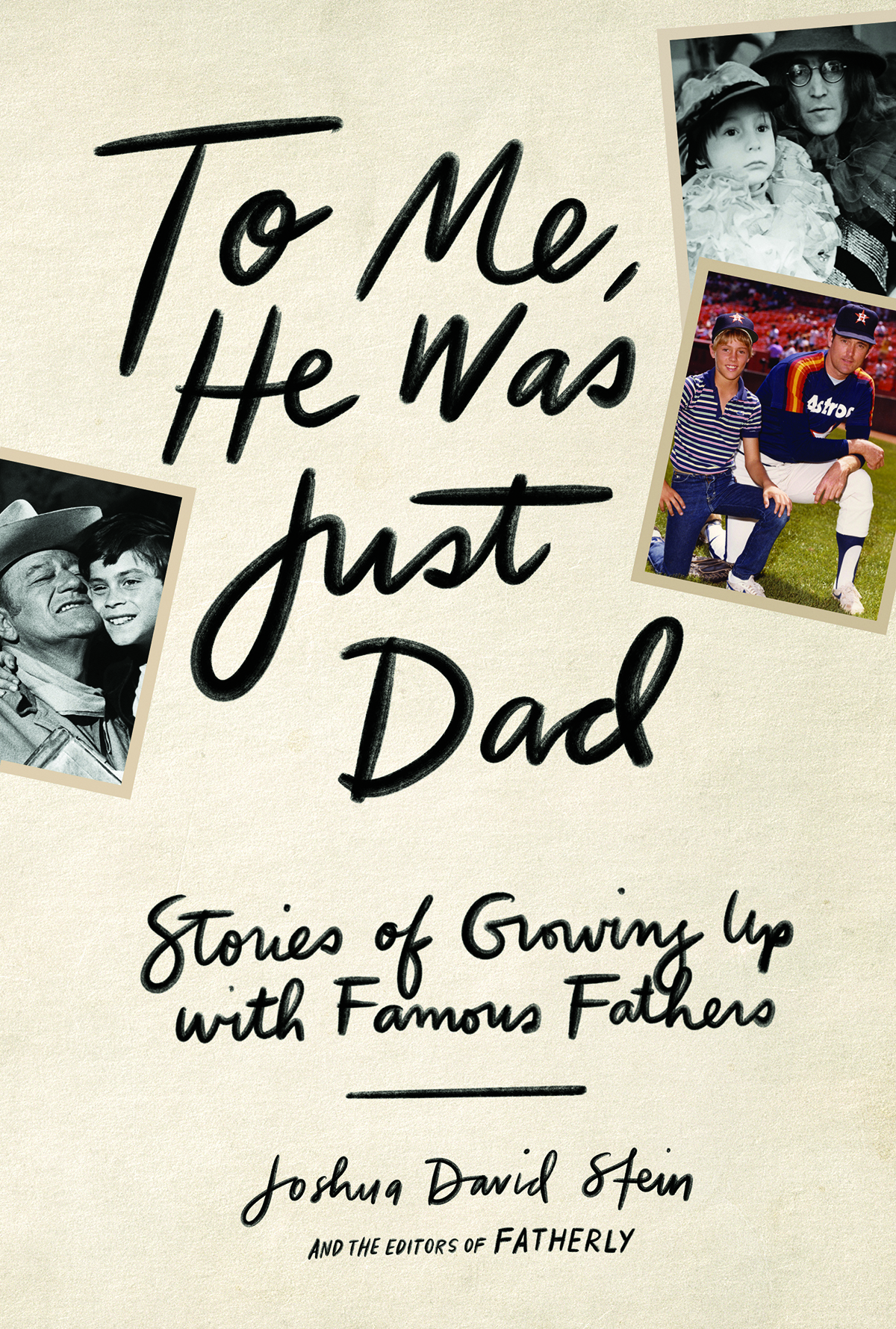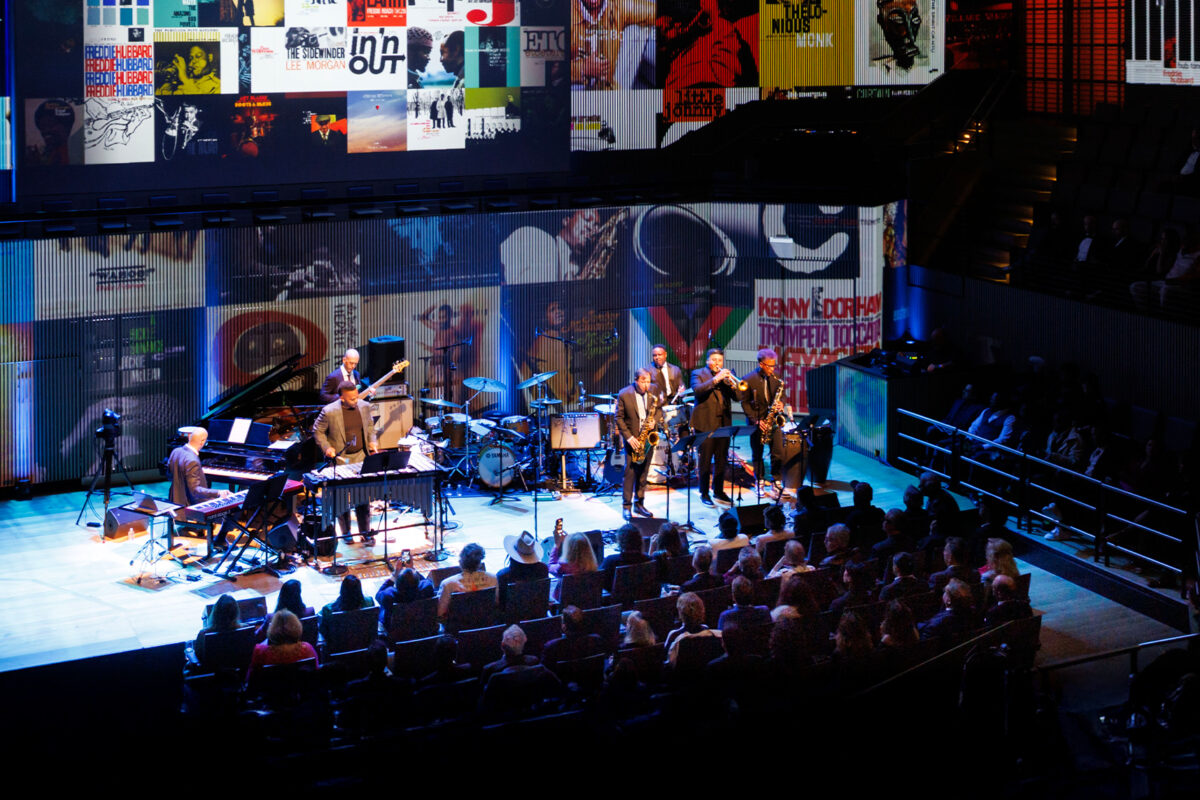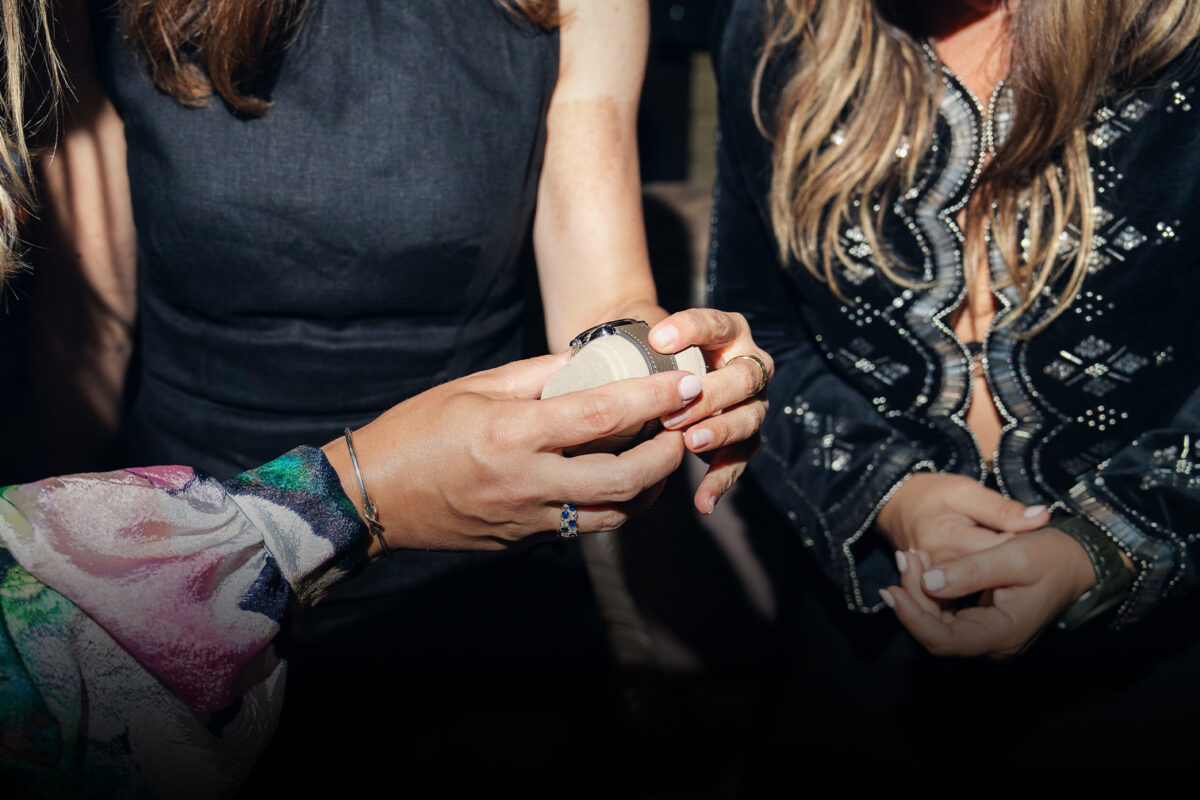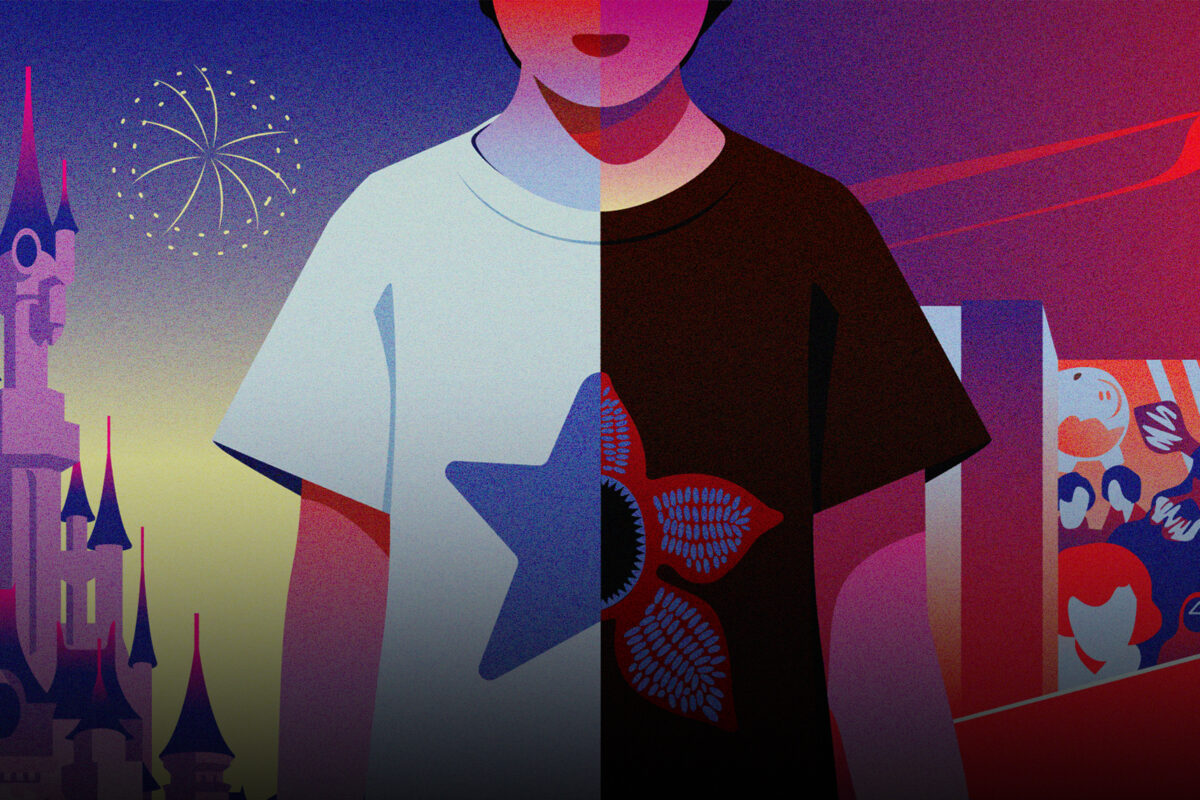Three offspring of Hollywood royalty share intimate memories of their famous dads
Excerpted from TO ME, HE WAS JUST DAD by JOSHUA DAVID STEIN
• • • • •
MY FATHER THE DUDE
Words by ISABELLE BRIDGES BOESCH, daughter of Oscar winner JEFF BRIDGES, the star of Crazy Heart and The Big Lebowski
My dad came from a family of actors. His father, Lloyd, was an actor. His mother, Dorothy, was an actor. His brother Beau is an actor, too. He knows firsthand how weird and challenging it can be to have an actor as a parent, which means he is very good at being a famous actor father.
When I was growing up, my dad was really hitting his stride. He made many of his greatest films, from The Fabulous Baker Boys to The Fisher King to Fearless, before I was 10 years old. He was often away shooting for weeks at a time, leaving my mother to look after me and my two sisters. She likes to say she takes care of the empire — and she does.
But when my dad was at home, it was like having the greatest, most imaginative friend in the world. What makes him such a wonderful actor is the same thing that makes him a wonderful playmate: he’s a great pretender. He relished opening up his rich inner life to share with me and my sisters, and he was always happy to be part of ours, too. My sisters and I loved to dress him up, put flowers in his hair — he’s always had a nice head of hair — and decorate his face with makeup. When Dad was around, we’d draw or paint or just play pretend for hours. He has such a playful spirit. The only time he ever brought his work home with him was the day he returned from shooting Blown Away still in makeup, his face appearing all bloodied and bruised. I think he wanted to scare us, but we just loved peeling off the stretchy plastic fake blood from his face. It was really satisfying.
But, of course, he couldn’t always be at home. When he was away, Dad made sure we stayed connected. He’d call every night. He’d say something like, “Isabelle, when you’re asleep tonight, you’ll see a building. Go through the front door and climb up to the attic. What do you see?”
“I see the branch of an oak tree by the window,” I’d reply.
Then he’d ask, “Do you see the tree house nestled in the crook of the branch?”
I’d laugh and say I did.
“Let’s meet there tonight,” he’d say. “What are we going to do?”
“We’ll jump on our horses and ride to the mountains.”
“Sounds like a plan,” he’d say. In the morning, he’d call again, and we’d go over the adventures we’d had in our dreams the night before.
When dad was at home, it was like having the greatest, most imaginative friend in the world
Isabelle Bridges Boesch
I always knew that my father was loving and sweet and playful, but it’s still funny to me that he’s become so closely identified with the Dude. By the time The Big Lebowski came out, I was in high school, and, just like a typical teenager, I had zero interest in my father’s work. (I still haven’t seen some of his films from that period.) What I remember most is that around that time, we were on vacation in Hawaii, and my dad was wearing those hideous Sun Jellies from the movie. They’re one of the most well-known parts of his costume, but they were actually my dad’s own shoes. Anyway, my sister and I were so embarrassed by those godawful jellies, we threw them into the ocean. Today, they’d probably be worth a lot of money. Another funny thing about people conflating Dad with the Dude is that he’s not really a laid-back guy. He gets anxious. He experiences stress. Before he goes onstage, he always says he doesn’t want to do it, and afterward, he is critical of himself. Though he describes himself as “Buddhish,” and certainly those are themes reflected in the Dude, he doesn’t project Zen calm.
He is, however, extremely present. Even more so now that he’s older and a grandfather. I have two kids of my own, and he is very focused on being in their lives. We live in Oakland, but he and my mom visit often. And when he’s not able to be with his grandkids, he calls to plan dream meetings with them, too.
Isabelle Bridges Boesch is a mother’s empowerment coach and author. Her most recent book, Daddy Daughter Day, is written with her father.
• • • • •
MY FATHER THE BAD MOTHERF*CKER
Words by ZOE JACKSON, daughter of SAMUEL L. JACKSON, the all-time highest-grossing box-office star of Pulp Fiction
My father is a big nerd, in the best way possible. He is completely different from his cool-guy persona. He’s got a wormhole personality in that he burrows into whatever strange thing he’s interested in and gets really into it. After we moved to Los Angeles when I was 10, we would go to Golden Apple Comics on Melrose every week religiously. They even kept a pull box for my dad. (A pull box is something that only comic book nerds have — the store pulls the new comics on a customer’s list and keeps them behind the counter.) I used to be into all things Archie, but Dad’s pull box was full of weird and really violent comics that I wasn’t allowed to read. Dad and I didn’t start exchanging comic books until I got to college. I forced him to read The Sandman (the Neil Gaiman reboot). He forced me to read the neo-noir series 100 Bullets, the western Scalped, and WildStorm’s The Boys. When I was in college, whenever I went to the comic book store alone, I was sad. I wanted my dad to be there.
Before we moved to L.A., I spent a lot of time with my father. Both my parents are actors — back then working primarily in theater — and at that time, my mom was the busier, better known of the two. My dad took me to school every single day: We would get on the subway in Harlem, ride it downtown to a crosstown bus, and then transfer to another bus until we got to the Upper West Side. We would also go to the Bronx Zoo together. My dad loves animals: reptiles, mammals, fish. He especially loves snakes. He was full of animal facts — he actually studied marine biology in college.
Though I was largely shielded from it at the time, my dad was struggling with addiction during much of my childhood. When I was 8, he entered rehab. He was gone for 60 days, which was a confusing time for me. I had no idea anything was wrong. Now, when I look back on that time, I don’t know to what to attribute some of my memories. I remember going to a bar on the Upper West Side with my dad. He’d give me a quarter and I’d go play “Tequila” by The Champs in the jukebox on repeat. (I was really into Pee-wee’s Playhouse.) But I never saw him drunk that I know of. I just thought he was a dude who slept a lot.
We moved to Los Angeles for my mom. She got a role in the short-lived Chuck Lorre series Frannie’s Turn. But soon my dad’s career really took off, and my mom stopped working as much to take care of me. It’s funny that my father is the better-known actor, because my mom was the one who pushed him to act in the first place. They met in a professor’s office at Morehouse. (My dad went to Morehouse; my mom went to Spelman. The teacher taught at both colleges.) Dad was looking for extra credit, and Mom was doing some makeup work. She said, “You need to be in my play. Do you act?” Dad said, “Actually, I don’t,” but my mom replied, “Well, you do now.” And that’s how it went, and how it has gone ever since. My mom turns the key and sends Dad out into the world. He comes back and seeks her opinion, and she’s happy to advise.
After Pulp Fiction, my dad became cool. Or, he thought he did. He’s still just a big nerd to me
Zoe Jackson
They’ve been married for close to 50 years now. She still gives him notes on his performances. They can’t live without each other. They each send me articles about the other. I do think it was very hard for my mom to give up her career to raise me for as long as she did, though. She’s happy for my dad, of course, but it’s complicated. There’s a sadness there.
I was 12 years old when Pulp Fiction came out. After that, my dad became cool. Or, he thought he did. And though much of the world agrees, he’s still just a big nerd to me. He goes through phases. Now it’s watching Korean martial arts movies and Thai B movies. He reads four or five books about random topics at once. And now he DMs me all the time on Instagram and recommends obscure trap music and stuff. Once, he gave me a sweatshirt he got from working on Django Unchained. He said, “I signed it for you!” I was like, “Dad, thanks. Now I can’t wear it!” It’s up to my mom and me to pull him back down to earth. I mean, isn’t that what family’s for?
Zoe Jackson is an Emmy Award–nominated television producer and director. She lives in New York City.
• • • • •
MY FATHER THE DRAGON
Words by SHANNON LEE, daughter of legendary actor, producer and director Bruce Lee, who died in 1973, aged 32
I was only 4 years old when my father died. We were in Hong Kong. I don’t remember exactly where I was or how I found out, but I believe that my brother, Brandon, and I were with our mom at our home in Kowloon Tong when we got the news that our dad had been rushed to the hospital.
Accounts of my father abound, and I am careful to separate what memories are authentically mine from what I have learned through stories. All my very early memories are of Hong Kong, where we moved when I was 2 years old and lived until my father died two years later.
The greatest and most vivid memory I hold of my father is an overwhelming sense of being loved by him. That hasn’t diminished in the years since he died. Throughout my life, I’ve always felt that I knew my father, that I had a sense of who he was as a human being and what was important to him energetically. I used to think I must be crazy to feel I knew this, given that we spent so little time together and I have so few memories of him. How could I have any idea what he might have wanted? But the thing about my dad, the thing you can see watching films of his even now, is how much of a presence he was. He wouldn’t have said he was a master of life force, or “qi,” but plainly he was. He could summon and deploy energy at will. His energy still pops off the screen directly into us. That is the power that so engraved itself upon my memory. That deep sense of being loved, of being supported, and of having confidence was instilled in me at a young age. I feel it holding me in my approach to the world and how I move through it. I feel safe. At certain times, this sense can become obscured, but it’s always there when I really need it, reminding me who I am. My father hasn’t been in my life since I was a toddler, but he’s never stopped guiding me.
Martial arts has always been a part of our lives. Baba (“Dad” in Chinese) had turned our backyard into an informal Jeet Kune Do training ground. Guys like James Coburn, Chuck Norris, and Steve McQueen, as well as Baba’s regular students like Ted Wong, Richard Bustillo, and Dan Inosanto, used to come over to train. I remember my mom telling me the story of Brandon’s best friend, Luke, who never wanted to come over to our house because, as he said, “There are always grown men beating the crap out of each other in the backyard!”
After our father died, Brandon and I didn’t study martial arts for many, many years. I tried, briefly, when I was about 9 years old, taking a few Jeet Kune Do lessons with one of Baba’s former students. But the pressure was too great without him. There was a lot of judgment and grief — all mine, but there nonetheless. In my 20s, I finally felt that the time was right, and I asked Ted Wong, who was a family friend, to teach me. I wanted to get closer to my father through his love of kung fu and the art he created.
Ted was my dad’s protege in that he had come to my father as a “blank slate,” never having trained prior to working with him. After my father died, Ted pored over his writings, trying to connect the dots between what he had learned and what my father had left behind. Following Baba’s lead, he had turned his backyard into an informal training area as well. Ted had gotten hold of a chunk of titanium, which he punched to toughen up his hands in the same way my father had used canvas bags and other materials to toughen his years before. Though this was in the early ’90s, in Ted’s backyard in Monterey Park, it felt like the ’70s. There, under his guidance, I reconnected with my father through the movement art he had created.
I am older than he ever got to be, but he is still guiding me … as if he never left
Shannon Lee
My father was famous for saying, “Be like water,” by which he meant to be fluid, responsive to the situation, alive, present. His Jeet Kune Do is a very simple art — there are no set forms and very few moves — but it requires great skill. Once you achieve a basic understanding, it’s about being able to hone, adapt, and develop your second nature as a fighter. To practice Jeet Kune Do is to practice being alive, and in learning the art, I felt drawn even closer to my father.
As I got older, I started to read more of my father’s writings. Though they were usually about martial arts and Jeet Kune Do, they also made it clear that to be like water constituted an entire life philosophy. It’s a philosophy of being open to the world, a philosophy of fluidity, and of being comfortable in the flux. Baba’s words have been a tremendous comfort and inspiration to me in the ebb and flow of my own life. When Brandon died in 1993, I leaned heavily on my dad’s writings to help me process that grief. Now, as a parent myself, I return again and again to my father’s words. I am older than he ever got to be, but he is still guiding me. It’s as if he has returned to me. It’s as if he never left.
Shannon Lee is a writer, producer, actor and speaker, and the founder and CEO of the Bruce Lee Family Companies and the Bruce Lee Foundation. She lives in L.A. with her daughter.
Excerpts from To Me, He Was Just Dad: Stories of Growing Up With Famous Fathers by Joshua David Stein (Artisan Books, $23).
Feature image: JEFF BRIDGES with his three daughters, Isabelle, Haley and Jessica. Photo by Susan Bridges.
This story originally appeared in the Spring/Summer 2020 Men’s Edition of C Magazine.
Discover more CULTURE news.
